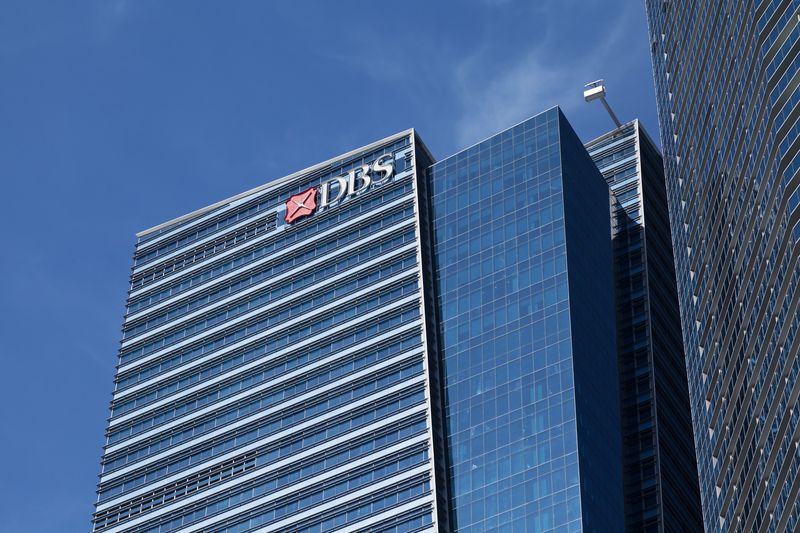Singapore's DBS Bank is trying a new investment banking approach by increasing the overlap between its equity and debt capital market businesses.
The bank has been a top player in the Singaporean DCM and ECM markets for decades, as well as pushing into G3 DCM bond deals around Asia and equity trades in markets like Hong Kong.
But bond issuance volumes and primary equity market activity have fallen since interest rates surged on the post-pandemic economic reopening. As other banks in the region cut staff, DBS instead made a change in strategy.
In March 2024, DBS merged its equity capital markets, brokerage and digital exchange operations with its treasury markets business following the retirement of Eng-Kwok Seat Moey, who had come from the equity side and played a prime role in growing Singapore's REIT market. Bond industry veteran Clifford Lee was promoted to global head of investment banking.
Lee is applying his two decades of experience as the bank’s head of fixed income, effectively rebuilding the business from the ground up, to his new remit. Looking at ECM and DCM together as two sides of the same coin creates a “more comprehensive solution-based approach”, he said.
“When we approach both markets together, you have the benefit of being able to pivot one to the other where it makes sense,” he said. “Going to issuers and investors with more toolboxes to speak strategically just makes sense.”
Other banks have coverage bankers who can refer corporate issuers to a product-level expert at the bank, while their debt capital markets teams might be able to pitch both loans and bonds.
Lee’s strategy differs in the sense that ECM and DCM bankers are literally pitching each other’s products, something he says keeps the IB team fully engaged and at the centre of the action.
“We really are agnostic in the product," said Lee, noting that traditional fixed income bankers have been able to push IPO mandates and ECM bankers with deals that were unable to come to market and are advising their clients to pivot to perpetual bonds that can still enjoy equity accounting treatment.
Because Asia’s capital markets are not as deep and diverse as those in the West, bankers in the region do not need the level of specialisation that a banker in London or New York would, Lee said.
"Pivot and learn"
Competitors have expressed scepticism about the approach, with one DCM banker saying ECM and DCM “lack synergy”.
But Lee is laying the groundwork for a long-term change, doing more cross asset-class education within the investment banking team and training up younger bankers to be more flexible. Team members have also been cross-licensed in equity and debt. Lee's vision is a multi-faceted origination team.
“For a young banker, it’s a great starting point,” he said. “You start to realise that they are able to pivot and learn. They are just really rounded.”
Flexibility will give bankers more job security if their respective markets slow down, Lee said.
The cross-sector approach also suits a universal bank like DBS. “We have the added tool in the bank that others do not because we have the balance sheet,” he said. The bank can provide bridge loans and offer private credit options.
As of August 13, DBS was ranked 14th for Asia Pacific ex-Japan, ex-Australia G3 currency bonds, with US$2.8bn of volume and a 1.9% market share, according to LSEG data. It was second in the Singapore dollar bond league table, behind OCBC, with S$4bn in volume and a 22.6% market share. In Singapore’s equity market, DBS was ranked second behind JP Morgan, and tied with Citigroup with a 10.2% market share.
Lee is targeting growth, especially in Greater China. DBS has been involved in the surge in issuance of offshore renminbi bonds, working on US insurer Chubb’s August debut and issuing its own Rmb3.5bn (US$487.8m) three-year Dim Sum bond on August 13, as it looks for cross-border opportunities in both the Panda and Dim Sum bond markets.
The bank also sees opportunities from Chinese companies that are delisting in the US and looking to list in Singapore or Hong Kong.
“With what is happening in the world, diversification is key,” said Lee. “The tension you’re seeing in the markets is forcing everyone to do a reset.”
That will mean putting more focus on the Hong Kong market, where Lee sees the bank as being underrepresented. The group booked a net profit of S$871m (US$581m) in Hong Kong in the first half of this year, up from S$800m a year earlier, compared with the S$4bn it earned from Singapore in the first half of 2025.
“You can’t control the markets,” said Lee. “What you can control is how you are organised.”






